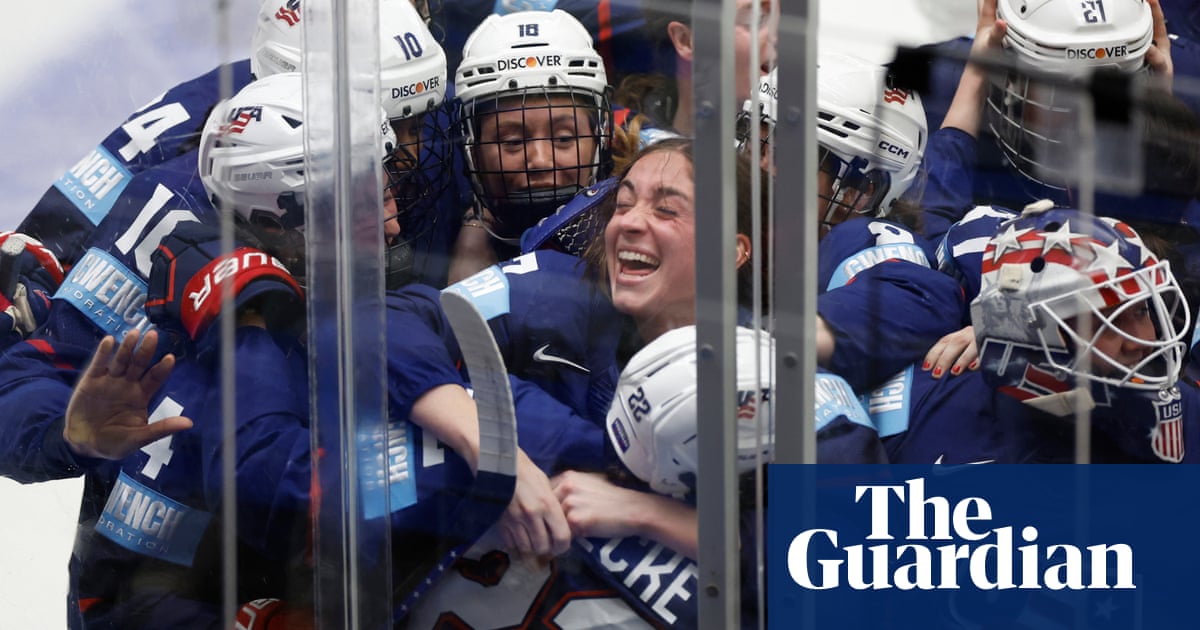An overtime goal from Tessa Janecke earned the United States a 4-3 win over reigning champions Canada to win gold at the women’s ice hockey world championships on Sunday as the latest chapter in their historic rivalry was decided in dramatic fashion.
“Shock and awe,” USA goalie Gwyneth Philips said after the game. “I’m ecstatic.”
With less than three minutes remaining in the first period of overtime, Janecke got to the puck ahead of keeper Ann-Renee Desbiens to score from close range before skating away and throwing her stick in the air in celebration.
The rivals have faced off for gold at 23 of 24 world championships, including last year’s gold-medal game, which Canada won 6-5 in overtime, along with meeting in six of seven Olympic finals.
It was the 11th title for the US, who are closing in on Canada’s haul of 13, and they gained sweet revenge for their loss last year when they hosted the tournament, and at the Arena Ceske Budejovice they laid down a marker ahead of next year’s Olympics.
After a scoreless first period, the second saw four goals in the space of two minutes and 16 seconds, with the US taking a 2-0 lead with goals in quick succession from Caroline Harvey and Abbey Murphy before Canada drew level.
Harvey celebrated the opening goal by miming holding a phone to her ear, after sheappeared to lose her mobile phone on the iceduring her side’s quarter-final win over Germany.
Danielle Serdachny shot through traffic to pull one back and Jennifer Gardiner scored her sixth goal of her first world championships, but Canada failed to take advantage of two power plays shortly afterwards.
The US, however, made the most of a power play early in the third period, and playing with a 5-on-3 advantage they went in front again through Taylor Heise.
Canada recovered from the sucker punch, killed off another penalty and Sarah Fillier pounced on a loose puck to equalise with less than six minutes remaining and ultimately send the match to sudden-death overtime.
The US lost first choice goaltender Aerin Frankel to injury in the third period, but Philips made some vital saves in overtime before Janecke found the winner from Heise’s pass in what was the longest game in women’s worlds history.
Earlier, Finland won their 15th bronze medal in the competition with a 4-3 overtime win over Czech Republic after the hosts had led 2-0 at the end of the first period.
The tournament was a roaring success in the Czech Republic, with a total attendance of 122,331 topping the previous highest of 119,231 set in Winnipeg, Canada, in 2007.
